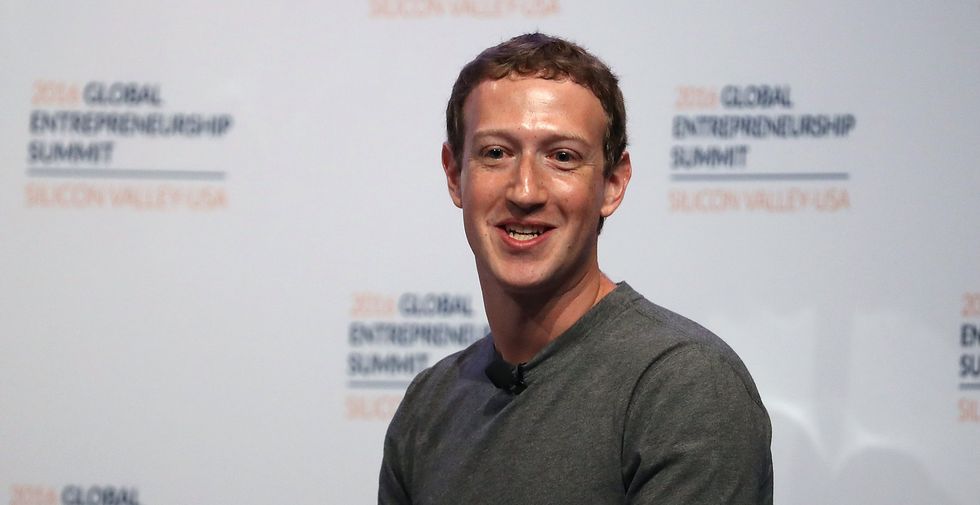
Facebook founder and CEO Mark Zuckerberg (Justin Sullivan/Getty Images)

Facebook founder and CEO Mark Zuckerberg says it's a "pretty crazy idea" to suggest the "small amount" of bogus news that habitually goes viral on his social media platform played any role in the outcome of the presidential election.
"I do think there is a certain profound lack of empathy in asserting that the only reason someone could have voted the way they did is they saw some fake news," Zuckerberg said. "If you believe that, then I don’t think you have internalized the message the Trump supporters are trying to send in this election."
The Facebook leader, speaking at a technology conference in San Francisco Thursday, said voters made their decisions not on fake news that circulated on the network but on "their lived experience."
However, not everyone in Silicon Valley agrees with Zuckerberg. Tech investor Dave McClure, founder of the business accelerator 500 Startups, said technology is "a propaganda medium" that has led the way in the trafficking of false information.
"People aren’t aware of the [expletive] they’re being told," he said Thursday during a Web Summit in Lisbon, Portgual, according to USA Today.
And technology forecaster Paul Saffo warned, "There has long been this naive view that technology is neutral and there's nothing neutral about technology. The problem is we can never figure out which way it's going to cut until it arrives."
But Zuckerberg has stood his ground. While speaking in San Francisco, he also rejected the idea that people's Facebook feeds have become so personalized that they are no longer being exposed to any opposing viewpoints.
"We’ve studied it a lot. I really care about this," he said, highlighting how important it is to him that Facebook users receive a "diversity of information."
Zuckerberg argued that most Facebook users are friends with people who have differing viewpoints.
"Even if 90 percent of your friends are Democrats, probably 10 percent are Republicans. Even if you live in some state or country you will know some people in another state, another country," he said. "That means that the information you are getting through the social system is going to be inherently more diverse than you would have gotten through news stations."
He argued that the issue isn't a lack of diversity on everyone's Facebook feed but that users don't "click on and engage" material they feel is in opposition to their predetermined ideals.